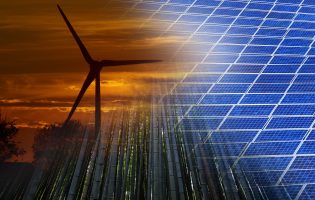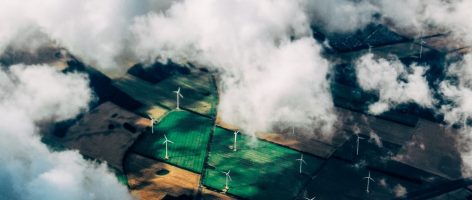
New Ideas for an Evolving Transatlantic Partnership
Foreign and Domestic Policy Recommendations During 2017-2018, the AGI project “A German-American Dialogue of the Next Generation: Global Responsibility, Joint Engagement” examined transatlantic challenges and new ideas for the German-American-European …

Changing Resource Needs for a Clean Energy Future: Transatlantic Implications – Part II
Transatlantic Opportunities for a Clean Energy Future As Part I of this blogpost highlights, the transatlantic partners face some risks and uncertainties when it comes to the resources necessary for …

Changing Resource Needs for a Clean Energy Future: Transatlantic Implications – Part I
Critical Materials for a Clean Energy Transition: Rare Earths and Strategic Resources The transformation toward cleaner energy sources entails a demand for resources that are required in clean energy technologies. …
The Next Generation: Remapping the German-American Relationship
Policy Report 63 This year’s Symposium is framed around the idea of “A New Transatlantic Generation.” We know that German-American relations have long been shaped by the personal connections that …
New Policy Priorities for the Transatlantic Partnership
More than twenty-five years after the end of the Cold War, the United States and Germany remain close political and economic allies. However, personal ties between the two allies have …
The Reform of the German Renewable Energy Act in 2014
Introduction On 11 July 2014 the Bundesrat (the upper house of the German parliament) passed a reform of Germany’s renewable energy law. The reform subsequently went into effect on 1 …
Fracking and the Presidential Election: Drilling for Jobs
On November 6, the U.S. presidential election will be decided in nine swing states: Virginia, Florida, Ohio, Wisconsin, Nevada, Colorado, Iowa, New Hampshire, and North Carolina, representing a crucial number …
Nuclear Energy in the U.S. and Germany: Weighing the Risks
Issue Brief 42 Energy and climate policy in the U.S. and in Germany seem to be miles apart. In 2011, Germany decided to phase-out nuclear, whereas in early 2012 the …
The Decentralization of the Electricity Grid – Mitigating Risk in the Energy Sector
Introduction Natural disasters like Hurricane Katrina in the U.S. in 2005 and the earthquake off the coast of Japan in 2011 (which resulted in a devastating tsunami and the nuclear …






